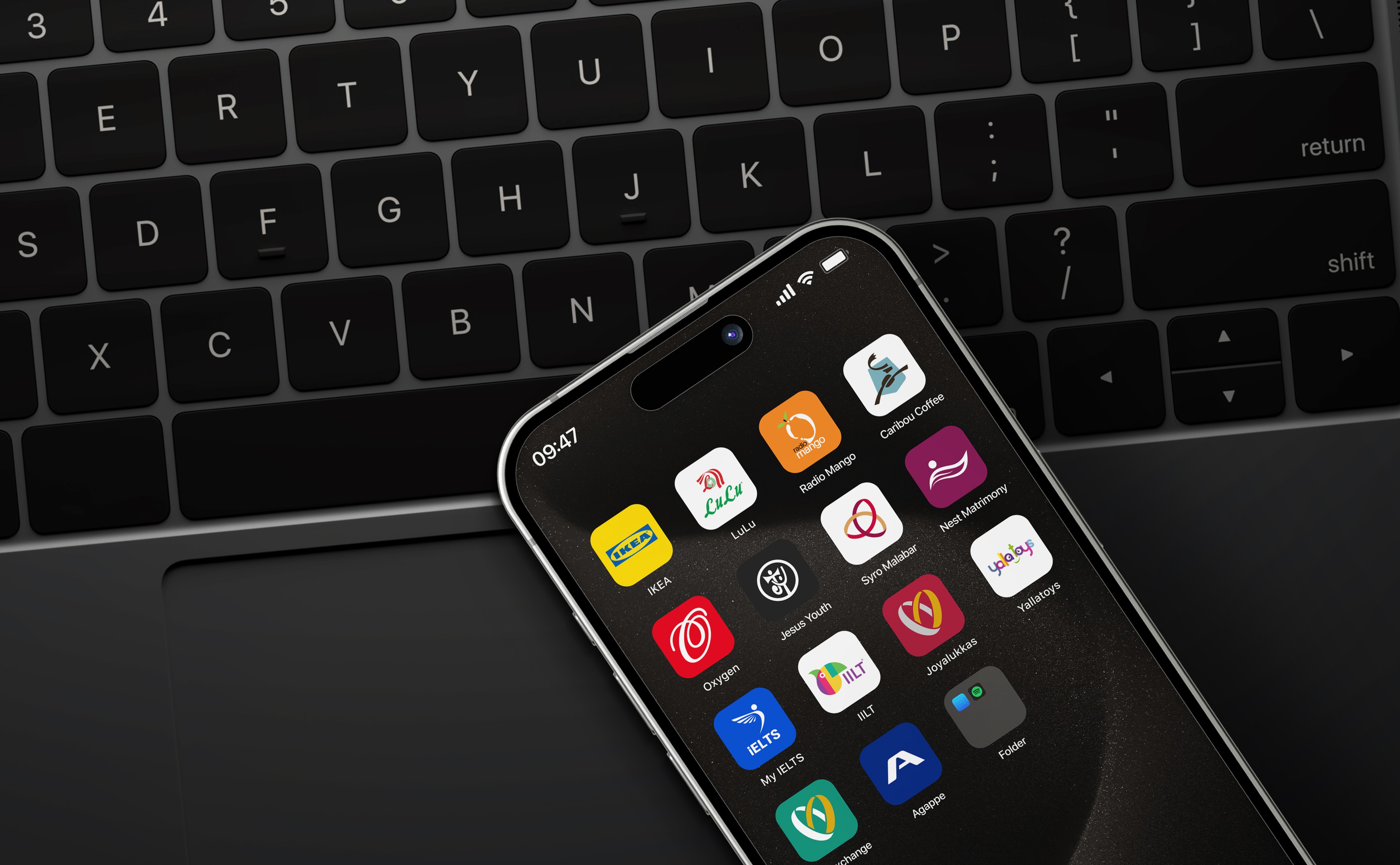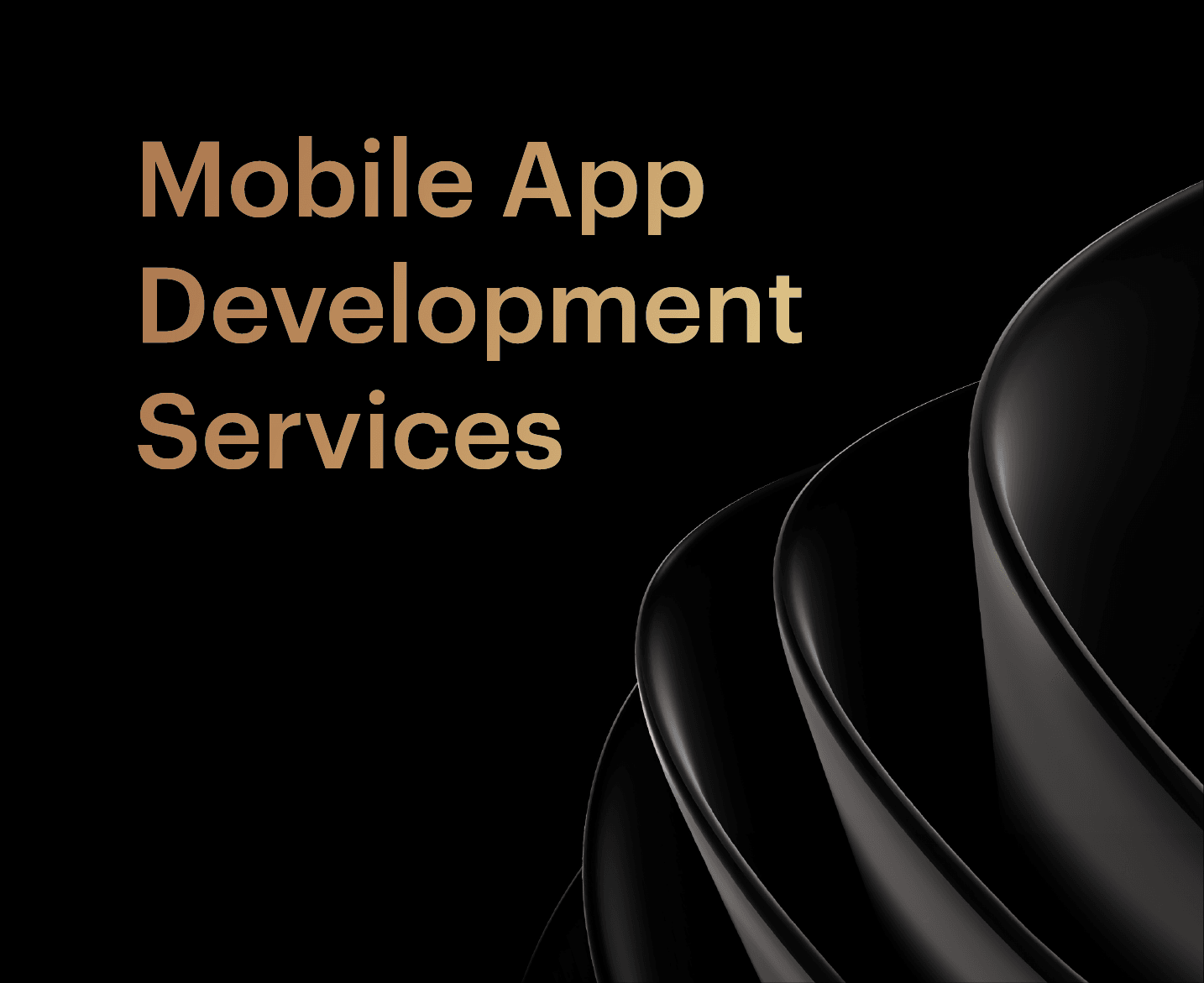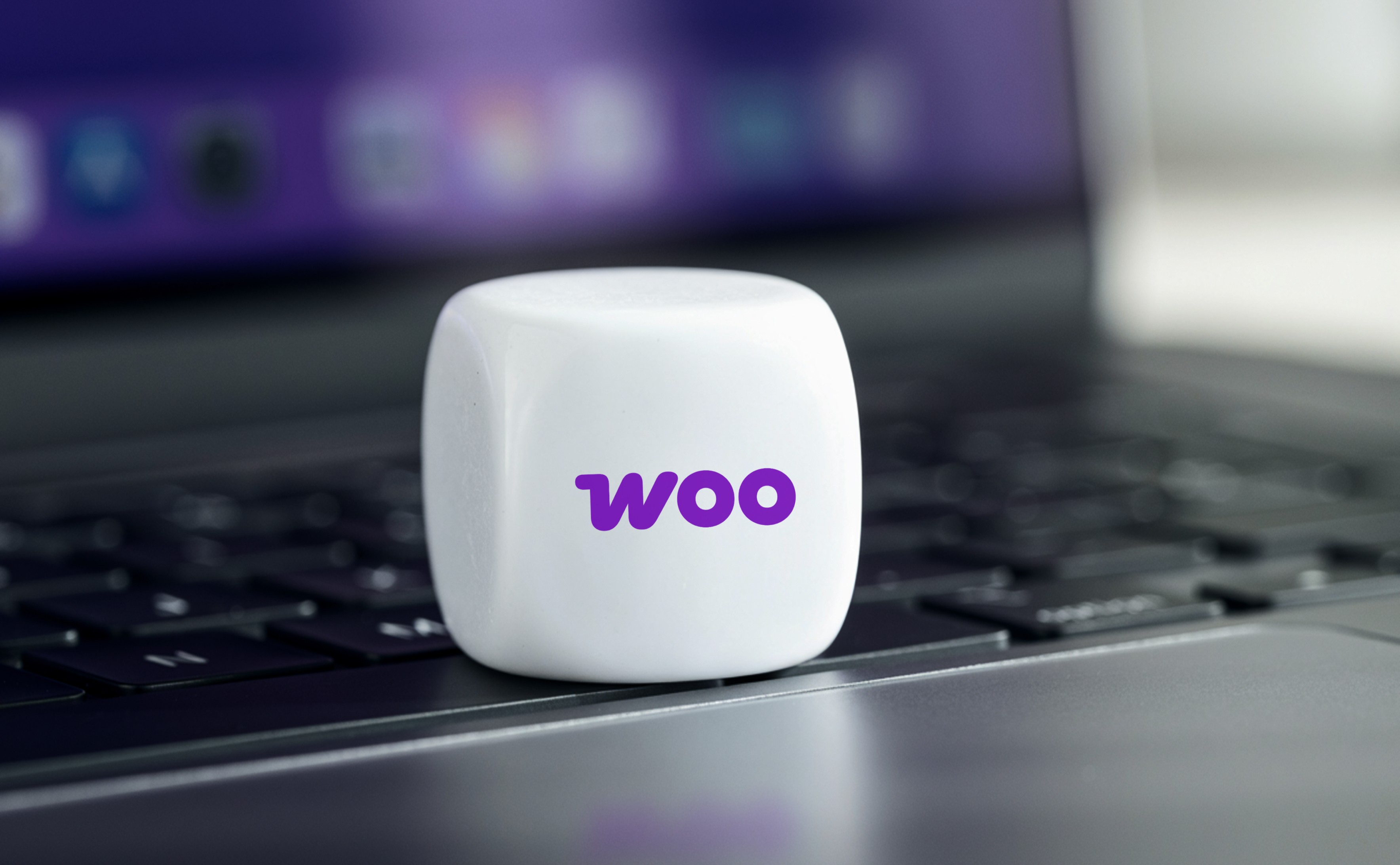Top 15 Mobile App Development Trends For 2026

Mobile penetration in daily life is increasing by the day; cheaper and faster internet is only fuelling the usage of smartphones further. From buying groceries to booking international flight tickets, from searching recipes to streaming movies, we use mobiles for everything today.
We feel incomplete without our phones; businesses are seeking mobile app development services to get engaging and bespoke apps to widen their reach.
The nature and use of mobile apps has been continuously evolving, thanks to shifting customer preferences and requirements, and advancements in technology. Innovation is the buzzword as far as mobile apps are concerned.
It is important for businesses to stay updated with mobile app development trends if they want to attract customers and taste success with mobile apps. Obsolescence is a huge risk in this industry; there are new developments every so often, and customers want the latest. It’s only when you stay on top of new trends that you can serve your customers better and elevate your brand.
A Brief Look At Mobile App Technology
By mobile app technology, we mean the different frameworks, libraries, tools, components etc. that are used to develop mobile apps. Some of the most popular frameworks include Cake PHP, Angular JS, React Native, etc. To reach a global audience and boost revenues, mobile apps have become critical tools in today’s world with tech-savvy people. Mobile apps are more effective in increasing your digital footprint than your regular websites or legacy software.
What Is The Importance Of The Latest Mobile Application Development Technologies?
From consumer apps to enterprise-level solutions and high-performing medical solutions, there are mobile apps for everything today. To ensure reliability and functionality, developers must follow the trends in mobile app development and use the best tech stack in the process; this usually means using the most popular frameworks and libraries as the base.
You can have apps to communicate between devices, deliver social media integration, offer cloud storage, work with IoT devices, and more. The possibilities offered by the latest mobile technologies are limitless. Additionally, they help businesses generate more revenues with apps that build real-time connections with devices for improved data analysis.
Latest Trends in Mobile Application Development
1. Internet of Things
Our lives have been impacted to a great extent by IoT. This powerful technology involves a network of sensors that collect data from devices, people, and machines. It is a connected environment where devices share data to boost efficiency and deliver improved customer service.
This mobile app development trend is here to stay, and users can access desired services on their devices through dedicated apps, as they offer prompt, tailor-made services.
Mobile app developers are looking at using IoT to build more robust apps.
Uses
- Mobile IoT-based apps facilitate improved inventory management, predictive maintenance, supply chain supervision, streamlined tracking of assets.
- Allows users to interact with smart sensors, transfer and analyse data, send commands, and configure connected devices.
- Remote control of home security systems and appliances.
Benefits
- Greater control for consumers
- Smart home technology allows users to ensure safety even when they are away
- Increases safety, productivity, and efficiency in workplaces
- Predictive data and streamlines processes help reduce costs
- Enhanced customer experience with quick responses
- Increased agility and mobility
2. Apps for Foldables
In 2019, Samsung launched the Galaxy Fold - the first foldable Smartphone, followed by RAZR by Motorola. There is heightened consumer demand for this new mobile technology now, and we can expect it to increase in the coming years.
As per Statistita, 50 million smartphones will be shipped globally this year - meaning, a huge opportunity for app development for these foldables. Foldable phones mean huge screens and simultaneous opening of multiple windows; businesses can have apps specifically for foldable devices.
It’s a challenging app development trend, as you need to ensure that the apps run seamlessly on these devices.
Uses
- To provide detailed and immersive experiences to users
- Offer additional information and controls
Benefits
- Enhanced experience while streaming videos and playing games
- Multiple windows enable performing multiple tasks simultaneously
- Business with apps for foldables can gain a competitive edge
Future Forecast
- Increased market share of foldable devices can be expected in coming years, so businesses should plan to have apps for them.
3. 5G Connectivity
5G is the fifth generation mobile network and is a global wireless standard. It’s designed to connect machines, devices, objects, and so on. Though not exactly the latest, 5G technology has generated significant excitement this year, as companies have started incorporating the technology on a massive scale.
There are a number of 5-G enabled devices in the market, driving this mobile application technology trend even more.
It is expected by 2025, there will be over 660 m smartphones with 5G connections - that’s more than 45% of the devices.
Uses
- Provides connectivity for edge computing
- Delivering broadband like mobile data service
- Facilitates harnessing the power of IoT
- Healthcare - wearables can quickly alert doctors to changes in patient vitals
- Agriculture - farmers can monitor livestock, land, and crops better
- Mission-critical communication facilitates remote control of everything from infrastructure to medical procedures
Benefits
- Enhanced consumer experiences in several areas like healthcare, gaming, video streaming
- Massive network capacity
- Reduces cost in fields like tracking, logistics, etc
- Immersive experiences made easier and smoother
Future Forecast
- Speed of 5G will increase to be 100x that of 4G, with latency reducing to 1 millisecond. Think OTT platforms with 4K streaming.
- VR based gaming apps and 3D printing apps are a definite possibility.
- Quicker and seamless transfer of data between devices and smartphones and reduced battery consumption.
- We can also expect faster and more secure mobile payments.
- Location trackers offering greater accuracy for GPS-enabled apps.
4. Integration with Wearables
The demand for wearables is increasing by the day, with Smartwatches topping the list. They help to monitor fitness and health, manage diseases, send critical alerts, and so on. Today the wearable tech market is worth 71.9 billion USD, and increasing each year. As they are integrated with smartphones, it means increased requirement for apps that offer the connected environment.
Developers are building apps capable of exchanging data between mobiles and wearables so that users can access info from either. Mobile app development trends show that Apple is especially focused on integration between the two to build an ecosystem for their products.
Building apps to provide a consistent experience across wearables and mobile phones is a major trend today.
Uses
- Fitness tracking apps to count steps, calories burnt, workouts completed etc
- GPS tracking apps that help to track location and navigate
- Health monitoring apps for tracking O2 level, heart rate, blood pressure, etc.
- Special socks that monitor jogger’s actions
- Baby clothes to detect baby waking up
Benefits
- Convenient and instant monitoring of vital statistics
- Promotes healthier lifestyle with personalised recommendations
- View text messages, answer calls etc. even if the phone is not in hand
- Get timely updates of important information
- Conduct real-time classes with remote students
- Enhanced patient monitoring in hospitals
Future Forecast
- The healthcare sector is most likely to see an even increased adaptation of this technology with glucose sensors, heart monitors, wearable ECG monitors, etc delivering real-time alerts.
- Industrial workers will receive real-time instructions and info that boost efficiency and productivity.
- Smart glasses, contact lenses etc. will enable users to experience AR even better.
- The wearable tech market is expected to touch 380 billion by 2028.
5. Beacon Technology
This is one of the mobile application development trends generating tremendous interest today. It connects to mobile devices present within a 100-feet range by using low-energy Bluetooth signals.
Beacons are minuscule wireless transmitters capable of connecting with mobile apps nearby, and communicate with them. Stores install the beacons that connect to smartphones via Bluetooth, provided the app is present on their device. If a user is close to a beacon, they can get notifications about special offers available in that store.
Fortune Business Insights say that this market is experiencing 48.9% CAGR, and will cross 30 billion USD by 2026. Retail, real estate, healthcare, and other sectors are where this technology is being used the most for app development.
Uses
- Deliver personalised content, offers, and notifications to users based on location
- Deliver rich consumer experience
- Businesses can track buyer behaviour in stores
- When users spend more time in a specific section, the app can trigger notifications about a sale offer
Benefits
- Hospitals, restaurants, pharmacies, diagnostics centres etc, that rely on local business are greatly benefitted
- Instant access to accurate information
- Proximity marketing improves customer experience within apps
- Precise detection of users
- Consumers can get life-saving notifications in emergencies
6. Mobile Commerce
You may think that there’s nothing new here, and you are right; but this trend will continue to trend upward for some time to come. From content creators and personal brands to retailers and multinational chains, everybody is on the mobile commerce bandwagon.
Mobile e-commerce apps greatly benefit businesses, which can be evinced from the fact that over 72% of total ecommerce sales in 2021 came from mobile devices. Apps have played a huge role in this success, and continue to do so.
Uses
- Banking and Finance
- Mobile shopping
- Flight and hotel booking apps
- Mobile payments
Benefits
- Accelerated buyer journey
- Enhanced customer experience
- Businesses can reach wider audiences
- Reach customers at the right time
- Customers get direct and personalised content
- Promotes impulse purchases
- Better engagement with customers
Future Forecast
- By 2025, 10.4% of all retail sales will be through mobile commerce, as per Insider Intelligence.
7. Artificial Intelligence and Machine Learning
Both these technologies are not the latest mobile development technologies but they continue to trend thanks to the amazing developments made. The technology advancements are expected to be even higher in 2024.
ML is basically teaching machines to recognize and understand patterns, behaviours etc. by feeding them volumes of data. AI makes use of ML to provide intelligent responses and solutions. IoS app development has used ML models to deliver exceptional immersive experiences to consumers.
ChatGPT has put LLM or Large Language Models at the fingertips of ordinary consumers, and they are hungry for more. Today, many startups are coming up around consuming LLMs with conversation as the chief goal - this means delivering this experience to users through mobile apps.
Uses
- Data mining to extract insights
- Helps businesses understand consumer behaviour
- AI-powered chatbots provide responses to customers 24/7
- Offers predictive analysis and enables businesses to make informed decisions
- Social media integration to gain insights about their audience
Benefits
- Enables business to take informed decisions
- Simplifies routine tasks
- Provides personalised , intelligent suggestions to consumers based on past patterns
- Provides enhanced security for mobile apps
- Automated response features ensure seamless communication
- Enhances user experiences and boosts conversions
Future Forecast
- It is expected that there will be a growing trend of mobile apps focused on AI-generated speech, images, and editing software that can add effects in images, audio, video, etc.
- We can expect more data-intensive apps on indigenously trained ML models; consumers will be able to access apps that run data-intensive feedback-dependent ops in the background.
- Think of apps that anticipate your requirements, understand your emotions and adapt in real time via voice commands and facial recognition.
8. Instant Apps
Android launched Instant Apps a while ago, but we can expect increased adaptation from this year onwards. Developers can create instant mobile app experiences to boost app discovery. The ‘Try Now’ button allows users to try the app without having to install it. As of now, it’s only available for Android app development.
Obviously, these won’t be the full-version apps, but users can still experience the app without downloading it. A mobile commerce app called Hollar increased their conversions by 20% thanks to them launching an instant app; a whopping 30% of their entire traffic from Android devices comes from the instant app.
Uses
- Improve app discovery
- Provide enhanced user experience
- Access app content without installation
Benefits
- Improve visibility
- Increase conversions
- Eliminates the need for users to download apps, saving space
- Gives competitive edge to businesses
Future Forecast
- Developers building apps for Android will need to launch an instant app version as well.
9. Gamification
User engagement has been a challenge for mobile devices, and to boost the engagement rate, it is essential that the app is overhauled with gamification strategy. It is among the most interesting mobile application trends today.
Gaming elements like badges, leaderboards, points, levels, and in-game currency will make the app more appealing, especially to the younger consumers.
Uses
- To boost user engagement
- Increases time spent by users on the app
- Especially valuable in education to foster healthy competition
- Enables users to focus on tasks without distractions
- Promotes self-motivation in healthcare apps (for example - step/calorie counting)
Benefits
- Increase user interest in the app
- Helps users be creative and engage more with the app
- Onboarding becomes more interesting for new users
- Boost retention and increase app downloads
- Helps boost productivity in employees - for examples, incentives for sales made etc
Future Forecast
- Expect increased adaptation of this trend in more sectors like healthcare, education, fintech, retail.
10. Blockchain Technology
Think of it as a digital balance sheet for cryptocurrency transactions, ensuring complete transparency. It plays a critical role in ensuring security of electronic transactions through mobile apps. We are all aware that digital payments experienced a significant increase during the COVID-19 pandemic, and is now hugely popular.
One of the latest trends in mobile app development is to integrate blockchain technology in mobile apps to leverage as much functionality as possible. As a result, today there are over 70 million blockchain wallets in use, with mobile wallets being the most popular.
Uses
- Tracking digital assets
- Keep digital identity safe
- Track loyalty programs
Benefits
- Data security ensured through private decryption keys for users
- Each transaction block includes the data and timestamp of the previous block, ensuring transparency
- Safe and reliable contactless mobile payments.
- Prevent fraud in mobile payment apps
Future Forecast
- It is expected that blockchain will become more mainstream with things like anti-piracy software, intelligent contracts, Blockchain-as-a-Service(BaaS) platforms, and tools for moderating elections.
11. Augmented Reality and VR
We’re already three months into 2024, and have seen how AR and VR have extended beyond gaming. These are transformative technologies that are redefining our physical world along with our digital experiences.
Fashion, healthcare, education, travel, and e-commerce, are the other sectors apart from entertainment and gaming where these technologies are turning out to be game changers.
Uses
- Retail and Fashion industries - customers can try out makeup, clothes, accessories, footwear virtually before buying
- Furniture - see how a piece of furniture fits in your room before you buy
- Home decor - try out paints virtually to select the most suitable colour
- Healthcare - for performing complex procedures
- Education - facilitates remote learning
Benefits
- Delivers immersive and lifelike experiences to customers
- Gives a competitive edge to business who include this feature in their apps
- Consumers can purchase the best fit for their requirements, saving returns and repurchases
Future Forecast
- Greater adaptation in medicine, travel, e-commerce, education and entertainment.
- More apps that leverage edge computing will be built, which means even faster processing and minimised latency.
- Powerful apps that offer fully immersive VR experiences by incorporating extended reality technology.
12. Cross-Platform Mobile App Development
Cross-platform development as a mobile application technology was the result of hybrid apps failing to provide the expected functionalities and desired UX. Building separate apps for different platforms was time-consuming and expensive.
Frameworks like Flutter fuelled the cross-platform app development trend. Google Ads and Alibaba use Flutter, and have exceptional UI and features.
Uses
- To ensure users on various platforms get the same experience
- Single app for different operating systems
Benefits
- Users can run the app on any device with same UI and UX
- One support team can handle issues regardless of platform
- Reduced upfront cost and lower risk
- Reach wider audience
- Easier maintenance and bug-fixing
Future Forecast
- With Android and Apple users steadfastly sticking to their preferred devices, the need for cross-platform apps is definitely going to skyrocket. More brands are shifting to cross-platform app development thanks to its many benefits.
13. On-demand Apps
The on-demand app development market has seen nearly 60 billion USD in investments, and has over 22 million users according to Harvard Business Review. Uber, Airbnb, Lyft, Blinkit, are examples of such apps. They allow you to order products or services and receive them immediately.
It also states that on-demand apps will be the future of app development. This tells us that the on-demand economy is slated for even more growth than today. App developers should leverage this trend to offer rich functionality and features to fulfil the dynamic requirements of your audience.
Uses
- Medical services
- Groceries
- Food
- Pet care
- Fitness
- Home care
- Laundry
- Salon services
Benefits
- Businesses can provide services instantly to customers who need them
- Provide enhanced customer service
- Consumers can access a wide range of services when they need them
- Consumers don’t need to plan in advance
- Real-time tracking of orders
- Helps build customer loyalty
- Efficient and cost-effective
Future Forecast
- It’s expected that on-demand apps could simplify the whole mobile app development process thanks to the emergence of innovative platforms.
14. Voice Recognition
Voice User Interface or VUI is the latest mobile technology that signals a major shift in our interaction with technology. We have already seen what is possible with virtual assistants like Alexa and Siri, that are voice-activated.
VUI is poised to be even bigger than these and ring in an age of interactions completely based on conversations.
Uses
- Convenient and hands-free search
- Enables hands-free ordering of food, sending text messages, and making calls
- Streamlined customer interactions
- Encourages conversations with customers
- Speech-to-text and text-to-speech features enables performing in-app functions
Benefits
- Improved customer service through conversations
- Personalised customer support
- Easy access for differently-abled people
- Enhanced user experience for customers
- Competitive edge for businesses that provide VUI
Future Forecast
- Users will converse with technology as if with other human beings - naturally; swiping, typing, tapping, and scrolling will be minimised if not eliminated.
- Touchless UI will become commonplace.
15. Cloud Computing Integration
Cloud technology is not new, but mobile app industry penetration is still low, and integration of cloud computing in apps is a new technology in mobile. But watch out for this app development trend, as it has limitless possibilities for development. Today, more than 80% of enterprises use cloud-based workloads.
Uses
- Perform complex tasks
- Roll out updates and bug-fixes seamlessly
- Delivery of interactive experiences to users in real time
- Facilitates sharing of large files without overloading user devices
- Healthcare apps can help healthcare workers manage patient care remotely
Benefits
- Streamlines development ops
- Cost-effective development
- Doesn’t necessitate additional investment in infrastructure at the user’s end
- Improved user experiences
- Fast and flexible
- Improved data processing and storage capacity
Future Forecast
- The increasing penetration of Smartphones is driving the demand for more apps, and mobile cloud computing is rapidly growing. By 2026, the market for mobile cloud computing apps could cross 118 billion USD, with a CAGR of 25.28%
- This will likely increase the scope for startups as investment required will not be very heavy.
Conclusion
While the future of mobile application development is bright, mobile app development is a dynamic process. Technologies and platforms become obsolete rapidly. To stay competitive as a developer, you need to update yourself. As a business owner, you need to know the trends to offer the latest to your customers and attract them.
Mobile app industry trends can make the difference between success and failure of your project.
That doesn’t mean that you need to have every single trend in all new mobile apps that you make; but it is critical that you have a thorough understanding of the market shifts, and adapt to it.
Implementing the appropriate mobile app development trend can ensure greater visibility to your audience, help build your brand, increase conversions, and ultimately, boost profitability. Hire Android app developers and iOS app developers from WAC—whether you're looking for a dedicated developer or an experienced app developer, we’ve got the expertise to bring your ideas to life.

Expert Mobile App Development Services
From enterprise to consumer apps that are specifically tailored to meet your business needs
- How to Start App Development for Startups Successfully
- Best iOS Architecture Patterns for Your App’s Success
- React Native vs Swift: Which one should you choose for iOS app development?
- SwiftUI vs UIKit: Which iOS UI Framework Should You Choose in 2026
- Swift Vs. Objective-C: Which is the Best Option for the 2026 iOS App Development?
Discover Digital Transformation
Please feel free to share your thoughts and we can discuss it over a cup of tea.










